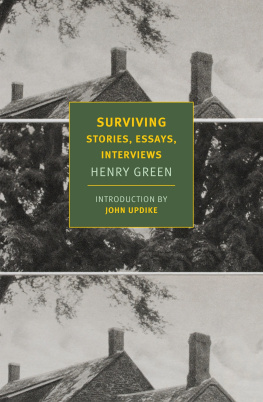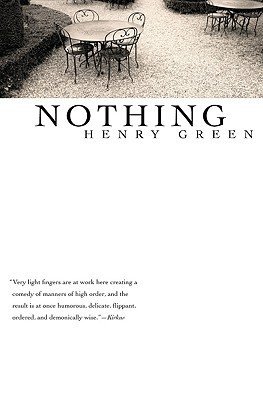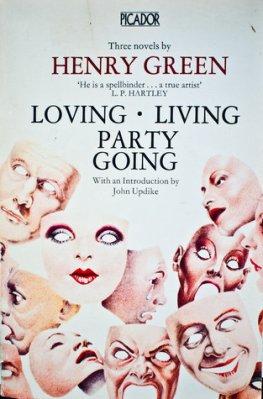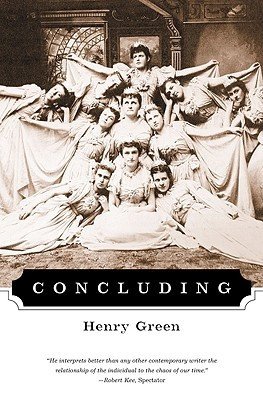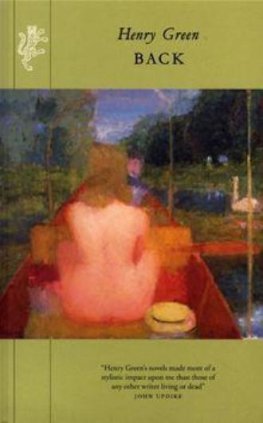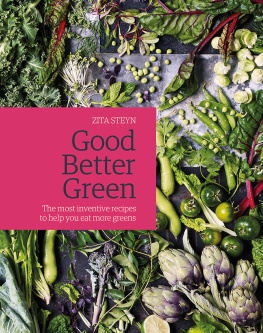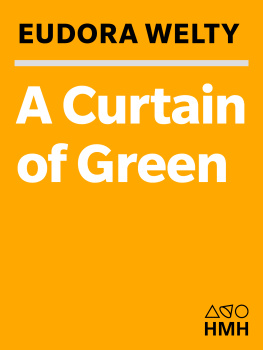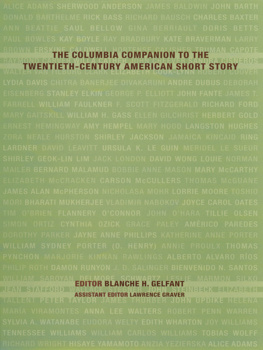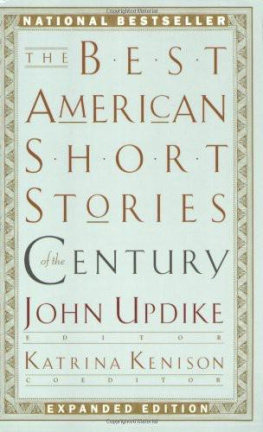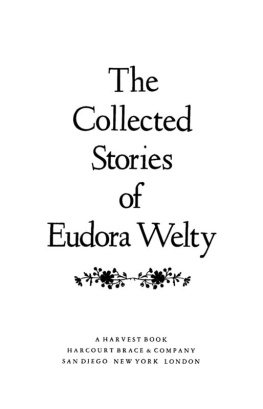HENRY GREEN (19051973) was the pen name of Henry Vincent Yorke. Born near Tewkesbury in Gloucestershire, England, he was educated at Eton and Oxford and went on to become the managing director of his familys engineering business, writing novels in his spare time. His first novel, Blindness (1926), was written while he was at Oxford. He married in 1929 and had one son, and during the Second World War served in the Auxiliary Fire Service. Between 1926 and 1952 he wrote nine novelsBlindness, Living, Party Going, Caught, Loving, Back, Concluding, Nothing, and Dotingand a memoir, Pack My Bag.
MATTHEW YORKE was born in London in 1958, the son of Sebastian Yorke and the novelist Emma Tennant, and the grandson of Henry Green. He is the author of three novels, including one book for young adults.
JOHN UPDIKE (19322009) was a prolific novelist, short-story writer, essayist, and critic. His major work was the set of four novels chronicling the life of Harry Rabbit Angstrom, two of which, Rabbit Is Rich and Rabbit at Rest, won the Pulitzer Prize for Fiction.
SEBASTIAN YORKE was born in 1938. He is the only child of Henry Green.
BY HENRY GREEN
(published by NYRB unless otherwise noted)
Back
Introduction by Deborah Eisenberg
Blindness
Introduction by Daniel Mendelsohn
Caught
Introduction by James Wood
Concluding (published by New Directions)
Doting
Introduction by Michael Gorra
Living
Introduction by Adam Thirlwell
Loving
Introduction by Roxana Robinson
Nothing
Introduction by Francine Prose
Pack My Bag (published by New Directions)
Party Going
Introduction by Amit Chaudhuri
SURVIVING
Stories, Essays, Interviews
HENRY GREEN
Edited by
MATTHEW YORKE
Introduction by
JOHN UPDIKE
Followed by A Memoir by
SEBASTIAN YORKE
NEW YORK REVIEW BOOKS

New York
THIS IS A NEW YORK REVIEW BOOK
PUBLISHED BY THE NEW YORK REVIEW OF BOOKS
435 Hudson Street, New York, NY 10014
www.nyrb.com
The writings of Henry Green copyright 1992 by Sebastian Yorke
Foreword and notes copyright 1992 by Matthew Yorke
Introduction copyright 1992 by John Updike
A Memoir copyright 1992 by Sebastian Yorke
All rights reserved.
Arcady is reproduced by kind permission of the Provost and Fellows of Eton College
Cover art: Jon Beacham, 2020
Cover design: Katy Homans
Library of Congress Cataloging-in-Publication Data
Names: Green, Henry, 19051973, author. | Updike, John, writer of introduction. | Yorke, Matthew, 1958 editor.
Title: Surviving: stories, essays, interviews / by Henry Green; introduction by John Updike; edited by Matthew Yorke.
Description: New York: New York Review Books, [2020] | Series: New York Review Books classics
Identifiers: LCCN 2019025142 (print) | LCCN 2019025143 (ebook) | ISBN 9781681374123 (paperback) | ISBN 9781681374130 (ebook)
Classification: LCC PR6013.R416 A6 2020 (print) | LCC PR6013.R416 (ebook) | DDC 828/.91209dc23
LC record available at https://lccn.loc.gov/2019025142
LC ebook record available at https://lccn.loc.gov/2019025143
ISBN 978-1-68137-413-0
v 1.0
For a complete list of titles, visit www.nyrb.com or write to:
Catalog Requests, NYRB, 435 Hudson Street, New York, NY 10014
CONTENTS
FOREWORD
BY MATTHEW YORKE
This book has been long in the offing. It was John Lehmann who first proposed a volume of Henry Greens Uncollected Writings. Dig about and see what you can come up with, he urged Green in 1971, enthusiastically listing the wartime stories and articles from the fifties. It is not known whether Green even replied to the letter in all probability he did not. Two further attempts were to founder, one soon after Greens death in 1973, the other at the end of the following decade.
That nothing came of these three ventures can now only be seen as fortuitous in view of the fact that a considerable amount of previously unknown material has come to light, the bulk of which was discovered in the late 1980s when the Yorkes house in Knightsbridge was being cleared. It is therefore from a much fuller archive that I have been able to select the pieces which comprise this book.
It has been my aim to arrange the material in strict chronological order. Not only does this reveal a strong sense of the development of Greens style, it shows the extent to which he veered away from fiction after the publication of his last novel Doting in 1952. Where the pieces have been previously published there have, of course, been no problems with dates. However the unpublished stories and sketches, many of which were found and taken from undated notebooks, have been much harder to place. Letters to and from Nevili Coghill, his close friend of Oxford days, and Edward Garnett, reader for Dent and Jonathan Cape, should have provided the clues unfortunately in some instances they have failed to do so. Where dates cannot be accurately attributed to pieces I have set out the facts of the matter as I know them.
Disregarding a large amount of juvenilia (carefully preserved by his older brother, Gerald Yorke, the words saved from the wastepaper basket touchingly written in pencil on one of the manuscripts) this volume represents about three quarters of the material in the Henry Green archive. All that remains now are a number of abandoned projects, two plays, and two articles on the craft of writing, published in the fifties, their points covered in more depth in pieces printed here.
In the course of compiling this book I have been given generous assistance, and I should like to thank the following people: Jonathan Burnham and Carmen Callil; Lady Dorothy Heber-Percy; Joan Henry; Alice Keene; Margaret Scrutton; John Updike; and the Yorke family.
INTRODUCTION
BY JOHN UPDIKE
Henry Green was a novelist of such rarity, such marvellous originality, intuition, sensuality, and finish, that every fragment of his work is precious, as casting a reflected light upon his achievement, the nine novels and the memoir that he published in his lifetime. There is not much uncollected Green, really; he was not a worker on Grub Street, piling up copy every week. Through the 1930s he was a man fully engaged in his business at the London office of H. Pontifex & Sons, able to produce only one novel, Party Going, in the decade. The forties saw him become an auxiliary fireman in the blitz and its aftermath, with one day in three devoted to his business in spite of all, his most productive period. In the fifties, growing famous, he ventured out into the world of journals and the BBC, and even managed a few such extracurricular chores as a translation from the French and a paeon to Venice, an obituary tribute to Edward Garnett and a friendly note for an exhibition of Matthew Smith. But, though these peripheral compositions are interesting, and in some cases revelatory, his art and his claim to fame are all but entirely concentrated in his novels. We read these previously uncollected pieces, lovingly marshalled by his grandson, for an answer to the question the editor Edward Garnett posed to the twenty-year-old Henry Yorke after reading his first novel, Blindness: How did you ever come to write any thing so good?
In England the literary vocation is usually the prerogative of the middle class, even when, like Evelyn Waugh, the successful writer puts on upper-class airs. The Yorkes enjoyed not only a venerable aristocratic background but owned a Birmingham factory. By Greens own account, in

